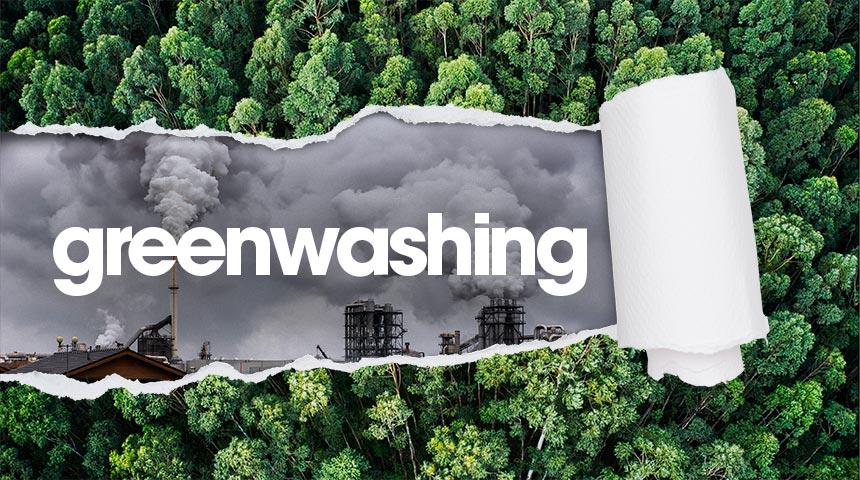Why the UK banned Air France, Lufthansa, and Etihad ads over ‘greenwashing’ claims (Indian Express)

- 21 Dec 2023
Why is it in the News?
Earlier in December, the United Kingdom’s ad regulator banned advertisements from Air France, Lufthansa, and Etihad for allegedly misleading consumers regarding the environmental impact of air travel.
What is Greenwashing?
- Greenwashing is the deceptive practice of creating a false impression or providing misleading information about the environmental sustainability of a company's products.
- It involves making unverified claims to lead consumers to believe that a company's products are more environmentally friendly or have a more positive impact on the environment than is accurate.
- Furthermore, greenwashing can occur when a company highlights the sustainable aspects of a product to divert attention from its involvement in environmentally harmful practices.
- Companies may employ greenwashing tactics by using vague claims that lack substantiated data or scientific validation.
- For instance, a car vendor might assert that a vehicle is eco-friendly due to increased fuel efficiency, conveniently overlooking or downplaying the broader environmental impact of vehicle manufacturing processes.
What are the Concerns With Greenwashing?
The practice of greenwashing raises apprehensions on several fronts:
- Authenticity of Climate Goals: There is a risk of undermining the authenticity of climate goals when misleading or exaggerated information about environmental initiatives is presented.
- Unwarranted Recognition and Benefits: Entities involved in greenwashing may receive undeserved recognition or benefits, potentially rewarding irresponsible behaviour and discouraging genuine sustainability efforts.
- Market Distortion: Greenwashing can distort markets by creating an uneven playing field.
- Entities engaging in deceptive practices might gain an unfair advantage over those genuinely adhering to stringent environmental standards.
- Lack of Comprehensive Regulations: The absence of comprehensive regulations and standards for environmental claims allows greenwashing to persist without adequate scrutiny, contributing to a lack of transparency.
- Challenges to Carbon Credit Systems: The practice of greenwashing introduces challenges to the integrity of carbon credit systems.
- This is particularly evident in informal markets, where the expansion of credit sources and certification by unofficial entities raise concerns about transparency and reliability.
- It's crucial to note that in the context of carbon credits, one credit represents the removal of one metric ton of carbon dioxide or equivalent greenhouse gases from the atmosphere.
- The concept of carbon credits was introduced by the Kyoto Protocol, providing rewards to countries or firms surpassing emission reduction mandates.
Global Initiatives Addressing Greenwashing:
- During the 27th Conference of Parties (COP27), the United Nations Secretary-General declared a zero-tolerance stance against greenwashing.
- Private corporations were urged to rectify their practices to align with genuine environmental efforts.
- In a landmark move in October 2023, the European Union approved the world's first green bond standards.
- These standards, under the "European Green Bond" label, mandate transparency and direct 85% of funds towards sustainable activities within the EU.
- The legislation aims to support the EU's transition to climate neutrality.
Laws in India:
- In India, greenwashing is classified as an unfair trade practice under the Consumer Protection Act, 2019.
- This legislation prohibits deceptive claims and outlines penalties and remedies for consumers adversely affected by such misleading practices.
- In February 2023, the Securities and Exchange Board of India (SEBI) issued guidelines for issuers of green debt securities.
- These guidelines are designed to ensure transparency, prevent greenwashing, protect investors, and regulate the development of the securities market.
- The Advertising Standards Council of India (ASCI), a voluntary self-regulatory organization, plays a crucial role in monitoring advertising practices.
- It holds jurisdiction over allegations of greenwashing, ensuring that ads are not only legal but also honest and fair.
- The ASCI's regulatory efforts aim to safeguard consumer interests and promote fair competition within the Indian advertising landscape.
